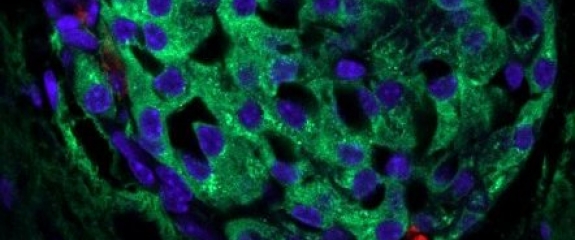Retraining the immune system may hold key to diabetes prevention

People with Type 1 diabetes could one day see the faulty cells in their pancreas either restored to health or replaced with new ones thanks to new research that could improve the lives of millions of people around Europe.
Type 1 diabetes is an autoimmune disease, meaning the body’s defence mechanisms mistakenly attack its own cells and organs. In this case, the immune system attacks insulin-producing beta cells in the pancreas, meaning that the body’s ability to process sugar, in the form of glucose, is damaged.
The abnormal blood sugar levels seen in people with diabetes can lead to serious complications ranging from blindness and kidney failure to stroke and foot amputations.
Today, people with Type 1 diabetes must inject themselves with insulin on a regular basis to avoid falling into a diabetic coma and to minimise their risk of serious long-term complications.
But researchers have been looking at alternative ways to solve the problem and believe beta cells are the key to preventing Type 1 diabetes from developing or getting any worse.
Professor Colin Dayan at the University of Cardiff wants to teach the immune system not to attack these precious beta cells. He is leading the EU-funded EE-ASI project exploring antigen-specific immunotherapy (ASI) which helps the body to recognise its own beta cells and suppresses any attempts by the body to attack them.


